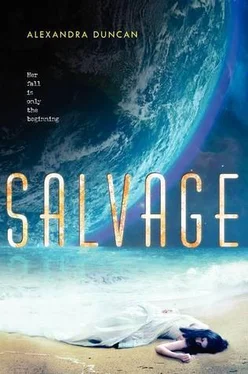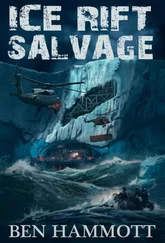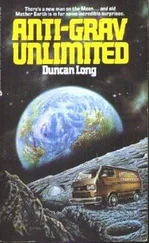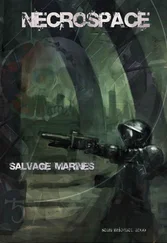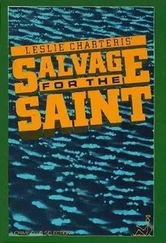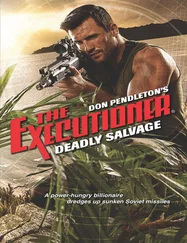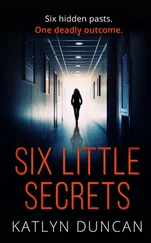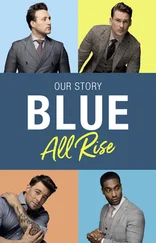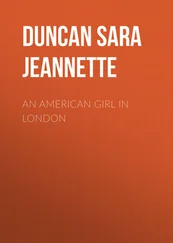“What isn’t?” Rushil says.
“This.” I wave my hand at the smoke-filled shipyard. “It isn’t good enough. Not for her.”
“Ava . . .” Rushil’s voice is soft, pleading.
I stand. “This is your fault.” My words are sharp as razor wire.
Rushil’s face crumbles, but I don’t care. I grab Miyole’s hand and stalk back through the clearing smoke to the sloop. No more weakness. No more waiting. No more dodging. I’ve got to do what’s best for Miyole. It’s time to confront my modrie.
T he second time I see Soraya Hertz, she’s sitting on a low cinderblock wall in the small park across the street from the university, eating her lunch. I’ve been lurking around the green, shady Kalina grounds all afternoon, trying to find the right time to talk to her. Earlier, Miyole and I snuck into the shadowy berth of the lecture hall while she stood under a wash of light on the far end, talking on about English and Hindi, and how they’re threaded into each other now. She wore a lemon yellow scarf loose wrapped over her dark hair. We stayed until a man in a security uniform started walking our way.
She’s even more real now, dusting crumbs from her hands for the pigeons trilling softly around her feet. She wears midnight-blue pants cut loose in the Mumbai style, with white slippers and a white silk shirt clasped tight at the wrists with glass buttons. Her scarf has fallen back from her head. She’s some how I remember, but not quite. I had thought she would stand out clear, as she did on the Parastrata, but here among these groundways women with their parrot-colored skirts and scarves and saris shot with gold thread, she could disappear as surely as the tree branches overhead weave into one dense, leafy roof.
Miyole and I sit on a stone bench, partially hidden by a juice vendor. Between us and Soraya, old men and couples and mothers with babies rest under the long arms of the trees. A tangle of skinny boys scuffle together, kicking a ball against the cinderblock wall.
Soraya snaps the top over her lunch tin, checks her water bottle to be sure the lid is screwed tight, and stows them both in her bag. She stands and brushes the wrinkles from her pant legs.
“Wait here,” I whisper to Miyole.
I feel as though I’m trailing along behind my body as I take one step and then another, around the juice vendor, past an ancient, knobby rain tree, barely breathing. Nearer now, five meters, then two, then an arm’s breadth. I stop. There’s some of my mother in Soraya’s face. Only my mother never had strands of silvery gray laced in her hair. She never lived that long.
Soraya looks up. “Can I help you?” She frowns. “Aren’t you in my morning lecture session? Don’t tell me. Is it Pakshi?”
She doesn’t recognize me.
I stop short. But of course she doesn’t. She never even saw me aboard the Parastrata; Modrie Reller made sure of that. And even if she had seen me, she’d be expecting a pale, amber-haired girl in skirts, not me with my darker groundways looks and my boots.
“No, missus.” My voice sticks in my throat. “You’re . . . you’re Soraya Hertz?”
“Yes.” She eyes me warily and secures her bag across her shoulder.
“The so doctor?” I want to be absolutely sure.
Shock twists her face. “What did you say?”
“I asked . . .” I look over my shoulder at Miyole, suddenly unsure of myself. “You’re Soraya Hertz, right so? The so doctor?” I shake my head. “Dr. Soraya Hertz?”
“Who are you?” Her voice climbs high and tight. Her eyes flick to Perpétue’s knife at my belt, then over to the juice vendor and the smallones at the water fountain.
“I . . . I’m Parastrata Ava, so missus. My mother, Ete, was your sister. You’re my blood modrie.”
For a moment, the afternoon hangs still around us. Horses and foot traffic trundle away on the nearby street. A crack and distant cheering rise far behind the trees, on the other side of the park.
“No.” Soraya turns away. “My sister’s dead. She never had any children.” She stands, grips her bag tight, and walks away from me at a brisk clip.
“Please, missus.” I follow her. “I don’t have anyone else to go to. I . . .”
She rounds on me. “I don’t know who you are or who put you up to this, but it’s sick, do you hear me? Despicable.”
I stop in the middle of the path. She doesn’t believe me. Her slippers slap the paving stones as she hurries away. If only I had some proof, some way to make her know . . . I reach for my throat. The data pendant, my ancestry charted back generations on generations. The disk rests warm on my skin, still threaded on its leather cord.
“Please, so missus.” I pull the cord up over my head and run after her. The disk gleams as it twists in the afternoon sun.
“I’m calling the police. Do you hear?” She holds up her crow. “I mean it.”
“Missus, please.” I hold the pendant out to her. “Look at this. It’s all I’m asking.”
She pauses mid-dial and looks up. Catches sight of the disk. My throat closes tight.
“Is that . . .” Soraya lets the hand holding her crow fall to her side. She reaches out and cups the pendant in her hand. Its delicate whorl of circuitry glints in the sun. She lets out a breath and slowly, heavily, raises her eyes to mine.
Children run by us as they barrel around the trees in a game of chase.
“If you look on it, so missus, you’ll see,” I say. “You only have to look. That’s all I ask.”
“No,” she says, hoarse. She tugs at the scarf wrapped around her neck and shoulders. “I don’t have to.” The satiny cloth parts, and there it hangs, strung on a silver chain at the hollow of her throat, a data pendant twin to mine.
The tapri is loud, brimming full of people, but Soraya finds us a quiet spot at a table wedged between a wall and a window.
“I think I saw you,” she says, studying my face. “When I came aboard to bury your mother, I saw a little dark-haired girl. You were running with the other children, but I didn’t think anything of it. They told me Ete never had any children, that she was cursed.”
Cursed. I swallow. “I saw you too. But these boys, they were teasing me and saying you were a giant come to take me away, so I hid.”
Miyole looks up from her yogurt drink and eyes us curiously.
Soraya shakes her head. “But I don’t understand why they lied to me about you.”
I do, I think, but I don’t say it aloud. What good would it do to tell her my crewe thought her corrupt, an outsider muddying our pure world with traces of the Earth? They must have wanted her gone, wanted all our ties severed.
She holds her pendant up to the light. “This was your mother’s. Iri and your great-grandmother Laral gave it to me when we buried her.” Her face changes suddenly; she looks stricken. “If I had known she had a daughter, I never would have taken it.”
Iri. I push my tea away, suddenly queasy. “It’s no matter.”
Soraya frowns and leans forward over her own cup of tea. “Are you married, then?” She says it quietly, as though speaking to someone who’s fallen ill.
I close my hand over the pendant. “No.”
“No?” Soraya frowns.
“No.” I say it firm. I can’t talk on this, not now, not with her, not ever.
Читать дальше
